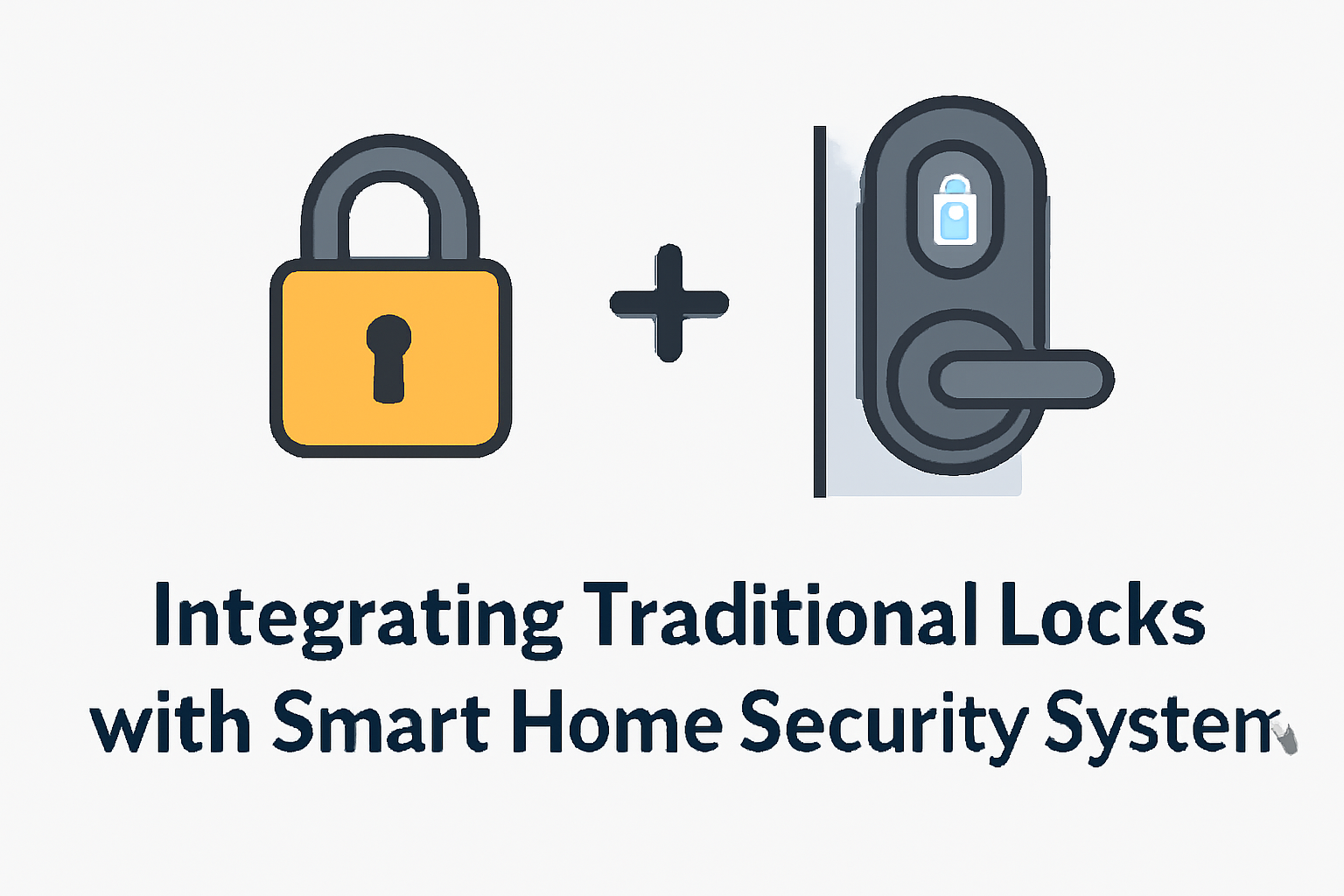Integrating Traditional Locks with Smart Home Security Systems

In a world rapidly embracing smart home technology, homeowners are increasingly seeking ways to modernize their security systems without losing the reliability of traditional hardware. One of the most practical and cost-effective solutions is integrating traditional locks with smart home security systems. This hybrid approach offers the best of both worlds—trusted mechanical durability with the added convenience and intelligence of digital control.
But how does this integration work? What are the benefits? And where do professional locksmith services come into play? Let’s explore how you can achieve a seamless blend of old-school reliability and cutting-edge security.
Why Combine Traditional Locks with Smart Systems?
Smart locks and digital systems are fantastic for convenience. You can unlock your door remotely, track access logs, receive real-time alerts, and even integrate your locks with your home assistant. However, smart locks often rely on power sources, Wi-Fi, or Bluetooth—which can be compromised by outages or technical failures.
Traditional locks, especially high-security deadbolts and mechanical cylinders, are known for their durability and resistance to physical force. They’re not vulnerable to hacking or digital interference.
By integrating both, homeowners can enjoy the advanced features of a smart home while preserving the reliable foundation that traditional locks offer.
Popular Integration Methods
Let’s talk about popular integration methods of traditional locks with smart home security systems for security lock upgrades in Harlow.
1. Smart Lock Overlays
One of the most popular ways to integrate traditional locks is by installing a smart lock overlay. These devices, such as the August Smart Lock, attach to the inside of your existing deadbolt. This means you can keep using your original key from the outside while gaining smart control via your smartphone or home hub.
2. Keypad and Bluetooth Deadbolts
Some deadbolt manufacturers now offer hybrid models with a traditional key slot and a keypad or Bluetooth connectivity. These allow homeowners to enter using a code or app while retaining the mechanical lock as a backup.
3. Retrofitting Existing Locks
With the help of a professional locksmith in Ware, you can retrofit traditional locks to work alongside smart access systems. This includes setting up smart sensors on doors that alert you when they’re opened or unlocked—even if done manually.
4. Integrated Security Platforms
Security systems from providers like Ring, ADT, or Vivint now offer compatibility with both smart locks and traditional lock sensors. You can arm your alarm system, monitor door activity, and even receive breach notifications no matter what kind of lock you’re using.
Benefits of Integrating Traditional Locks with Smart Security
Enhanced Security
Smart locks alone can fail if batteries die or networks go down. Traditional locks provide a physical fallback that ensures your property is still protected during outages.
User Flexibility
With both systems in place, family members, tenants, or service providers can choose between using a key or a digital code—whichever they’re more comfortable with.
Cost-Efficient Upgrades
You don’t have to replace every lock to make your home smarter. By retrofitting or layering smart solutions, you reduce installation costs while still modernizing your setup.
Remote Monitoring
Even if someone uses a key to unlock your door, smart sensors can still notify you. This gives you full visibility, regardless of how the lock is accessed.
Seamless Smart Home Integration
Once integrated, your locks can communicate with your lights, cameras, and thermostat. For instance, unlocking the door could automatically disarm your alarm and turn on the lights—streamlining daily routines.
The Role of Locksmith Services
Bringing smart and traditional systems together requires more than just a DIY installation—it requires expertise in both mechanical and digital security. That’s where professional locksmith services come in.
Here’s how locksmiths can help:
- Evaluate compatibility: Not all locks can be upgraded with smart overlays. Locksmiths assess your current setup and recommend compatible smart options.
- Secure installation: Whether it’s retrofitting a smart lock or reinforcing a door frame, locksmiths ensure everything is professionally installed for long-term reliability.
- System integration: Many modern locksmiths are trained to work with home automation platforms and can help integrate your locks into a larger security system.
- Emergency support: If your smart system fails, a locksmith can help you regain access using traditional methods—something a tech support call center can’t do.
- Maintenance and upgrades: Locksmiths also offer regular maintenance services to ensure both mechanical and smart components are functioning correctly.
Final Thoughts
The future of home security lies not in abandoning traditional methods, but in combining them with modern innovations. By integrating traditional locks with smart home security systems, you create a more secure, convenient, and flexible environment that adapts to your needs.
Professional locksmith services are the key link in this integration—bridging the gap between hardware and software, and ensuring your smart home is not just intelligent, but impenetrable.
So, before you discard your old locks or fully commit to high-tech solutions, consider the powerful combination of both—and let a trusted locksmith guide you toward a smarter, safer home.



